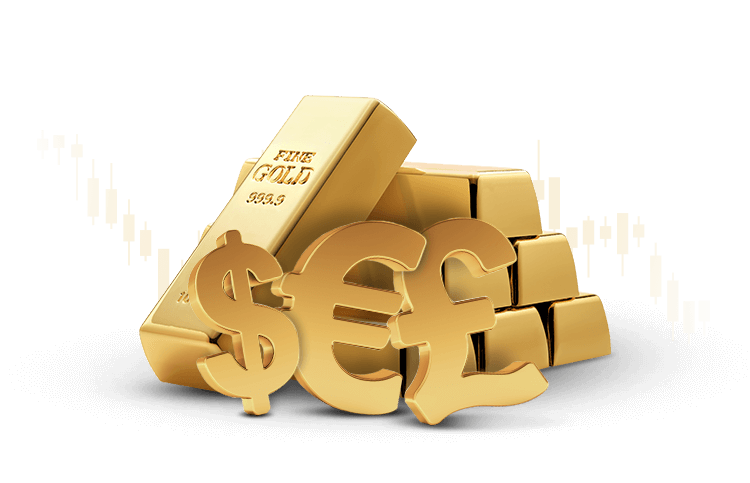The Connection Between Forex and Gold
Up until the mid 20th century, global currencies were directly linked to the amount of gold reserves they held, controlling the amount of paper money they could print and the potential value of their currency. This was referred to as the Gold Standard, because it standardized the value of a currency against Gold.
While this kept national currencies in check, it had some noticeable flaws such as a lack of flexibility and an assumption that all national banks remain transparent.
In 1973, the US went off the gold standard, allowing Gold to be traded on the free market while the US dollar would be controlled by the US Federal Reserve. This brought the greenback unprecedented volatility as the country was adjusting to a new system of controlling inflation. Today, the dollar has stabilized and traders look at XAU/USD to closely track the price movements between these valuable instruments.
Understanding the way today’s central banks use Gold in relation to their currency helps traders to understand the relationship between Gold and the Forex market.

Gold as a Currency
The ending of the Gold Standard did not put an end to Gold’s value. On the contrary, it allowed Gold to become a global “currency”, recognized by traders, individuals, and even governments as holding value.
This global recognition created a type of international currency that governments can use to exchange for paper currency and more. Unlike paper currency, there is no central bank to stabilize its value. Instead, value is decided by a free market where governments and traders influence its price. This independence from central control can tell us a lot about how Gold is valued in relation to global currencies.
This has given Gold a significant power over currencies and the governments that hold a large reserve of it. When countries hold large gold reserves with respect to the amount of cash in circulation, their currency is viewed as stable. If they choose to sell some of their gold, their currency value rises since they now hold a greater amount of foreign currency. On the other hand, central banks that wish to purchase gold as a means to stabilize their currency must print more money to fund their transaction, temporarily devaluing their paper currency in the process.
Correlation Between Gold and Forex
The correlation between Gold and paper currencies is a give and take that has been taking place for decades. Countries use gold to increase the value of their currency but must devalue their currency in order to obtain it.
From the perspective of traders, Gold is yet another currency where they can park their value in times of instability or currency deflation.
While there is no certainty that Gold will retain its value, traders rely on historical prices to estimate that a falling paper currency may instill a lack of confidence in the currency, creating a further devaluation of said currency. Other events that can affect the value of a currency are inflation, political uncertainty, significant trade deficits, and any other significant event which may affect its value.
As a currency drops, traders may turn to gold. If enough traders turn to gold at a given time and create waves in the market, it will increase demand without introducing a matched supply, causing the commodity to climb in line with demand. On the other hand, if individuals invest in a stable currency and new Gold supply exceeds demand, then the price may fall.
For example, when a trader holds GBP and recognizes that there is a large trade deficit within the EU, which has resulted in a devaluation of the British Pound, he may look to gold as its value may be on the rise in comparison to the currency he holds.
On the other hand, if an investor is holding Gold and the value of GBP rises, he may shift his investments towards currencies.
One of Many Factors
While Gold holds influence over the value and stability of currencies, it is just one factor among many that can shift a currency’s value. Global markets, political events, central bank decisions, trade, and a slew of other events can affect the value of a currency, as well as gold, rapidly or over time.
Individuals who trade in the Forex market can use Gold as an additional instrument, allowing them to make trades on the precious metal alongside the movements of global currencies.
